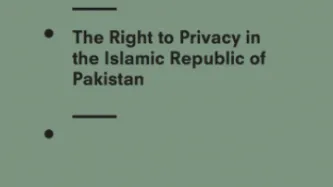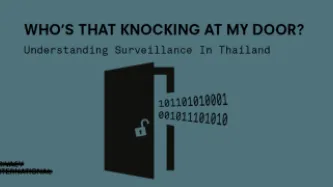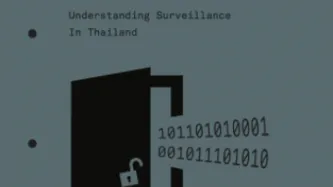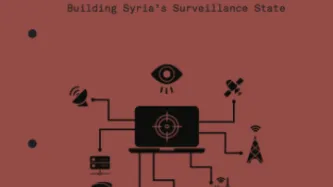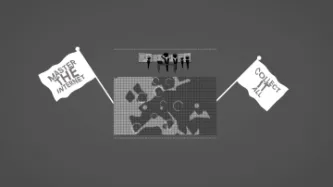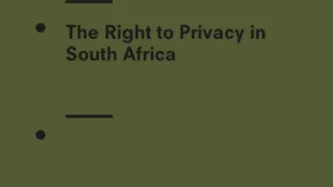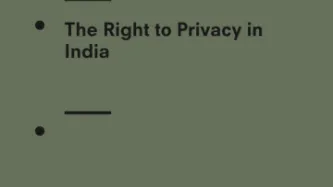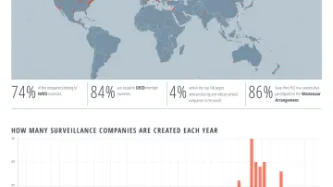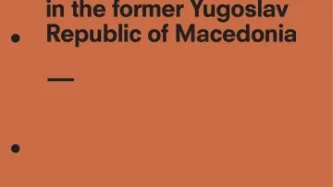Search
Content type: Press release
Please find attached a copy of the briefing along with promotional photographs with the briefing.
Privacy International has today sent top EU and UK Brexit negotiators* a briefing on their vulnerability to potential surveillance by each other, and others. Brexit negotiations are to begin today.
The global privacy rights NGO has highlighted to the negotiators the risk of sophisticated surveillance capabilities being deployed against each other and by others, and provided…
Content type: Advocacy
Update
Subsequent to our letter of January 2017 to the Italian export authorities expressing our belief that the export of an internet network surveillance system to Egypt poses a clear risk to human rights, the Ministry of Economic Development has confirmed in a press release that the authorisation has been revoked.
While the decision is to be welcomed, a feature documentary broadcast yesterday on Al-Jazeera shows the severity of the surveillance industry’s threat to privacy and…
Content type: Report
This investigation focuses on the techniques, tools and culture of Kenyan police and intelligence agencies’ communications surveillance practices. It focuses primarily on the use of surveillance for counterterrorism operations. It contrasts the fiction and reality of how communications content and data is intercepted and how communications data is fed into the cycle of arrests, torture and disappearances.
Communications surveillance is being carried out by Kenyan state actors, essentially…
Content type: Report
This stakeholder report is a submission by Privacy International (PI). PI is a human rights organisation that works to advance and promote the right to privacy and ght surveillance around the world. Privacy International wishes to bring concerns about the protection and promotion of the right to privacy for consideration in Pakistan’s upcoming review at the 28th session of the Working Group on the Universal Periodic Review.
Content type: News & Analysis
In our latest report “Who’s that knocking at my door? Understanding surveillance in Thailand”, we highlighted various methods of surveillance that the Thai Government employs. Included in these methods was the finding that Microsoft was the only technology company which by default trusts the Thai Government’s root certificate. Root certificates ensure the validity of a website, and protect users from being tricked into visiting a fake, insecure website. Most technology companies including Apple…
Content type: Report
This investigation looks at how surveillance is being conducted in Thailand. The first part of the investigation focuses on the ties between telecommunication companies and the state, and the second part of the investigation focuses on attacks conducted in order to attempt to circumvent encryption.
Content type: Long Read
The use of IMSI catchers[1] to arrest individuals is rarely documented — as IMSI catchers are used secretively in most countries. The arrest of Colombian drug lord Henry López Londoño in Argentina is therefore a rare opportunity to understand both how IMSI catchers are used, and also the complexity of their extraterritorial use.
In October 2012, Londoño — also known as Mi Sangre (“My Blood”) — was arrested in Argentina. His arrest was the result of cooperation between the Dirección de…
Content type: Long Read
In July 2015, representatives of a private company met in a parking lot in Pretoria, South Africa to sell phone tapping technology to an interested private buyer. What they did not know was that this buyer was a police officer. The police had been tipped off that the company was looking to offload the surveillance technology, an IMSI catcher, to anyone who would buy it. It is illegal to operate such surveillance technology as a private citizen in South Africa, and illegal to buy…
Content type: Report
Privacy International’s investigation contains evidence of the Syrian government’s ambitious plans and projects to monitor the national communications infrastructure, the technical details of which are revealed for the first time. Hundreds of original documents also highlight surveillance trade in this region leading up to and during the Arab Spring, which involved companies from around the world.
Content type: News & Analysis
Brexit and Privacy
It's as clear as mud, what it means when a country decides to willingly pull out of a trading bloc, a policy coordination mechanism, a relatively democratic network, and a framework for the free flow of people, data, and rights. Meanwhile today the minister in charge of surveillance for the past six years will assume the leadership of the country.
There is much speculation as to what is next. Here's our take. Importantly, there's a lot to be worried about, some to like…
Content type: News & Analysis
This piece was written by PI Research Officer Edin Omanovic and originally appeared here.
Whatever happens over the next few years, if there is to be a storm, then it is best to prepare. It is essential that western liberal democratic societies are resilient enough to uphold their fundamental values.
One of the UK’s biggest security assets is one of its biggest security threats. The UK’s spies have access to and are allowed to exercise some of the most sophisticated electronic…
Content type: Press release
For further information please contact PI Legal Officer Millie Graham Wood: [email protected]
For media enquiries please contact [email protected]
Documents obtained by Privacy International reveal the existence of a secret oversight function given to the Intelligence Services Commissioner (ISC), in operation since at least 2014. The details of this function, referred to as the ‘third direction’, remain redacted and only came to light following…
Content type: Long Read
This piece was written by Ashley Gorski, who is an attorney at the American Civil Liberties Union, and PI legal officer Scarlet Kim and originally appeared in The Guardian here.
In recent weeks, the Hollywood film about Edward Snowden and the movement to pardon the NSA whistleblower have renewed worldwide attention on the scope and substance of government surveillance programs. In the United States, however, the debate has often been a narrow one, focused on the…
Content type: Press release
Key points
Bulk Communications Data (BCD) collection, commenced in March 1998, unlawful until November 2015
Bulk Personal Datasets regime (BPD), commenced c.2006, unlawful until March 2015
Everyone’s communications data collected unlawfully, in secret and without adequate safeguards until November 2015
We maintain that even post 2015, bulk surveillance powers are not lawful
As the Investigatory Powers Bill is set to become law within weeks, we argue that the authorisation and…
Content type: Advocacy
This stakeholder report is a submission by Privacy International (PI) and the Right2Know Campaign (R2K). This report has been prepared with the assistance and research done by the Media Policy and Democracy Project. PI is a human rights organisation that works to advance and promote the right to privacy and fight surveillance around the world. R2K is a broad- based, grassroots campaign formed to champion and defend information rights and promote the free flow of information in South Africa…
Content type: Advocacy
This stakeholder report is a submission by Centre for Internet and Society India (CIS India) and Privacy International (PI). CIS is a non-profit organisation that undertakes interdisciplinary research on internet and digital technologies from policy and academic perspectives. Through its diverse initiatives, CIS explores, intervenes in, and advances contemporary discourse and practices around internet, technology and society in India, and elsewhere. PI is a human rights organisation that…
Content type: Long Read
This week, Privacy International, together with nine other international human rights NGOs, filed submissions with the European Court of Human Rights. Our case challenges the UK government’s bulk interception of internet traffic transiting fiber optic cables landing in the UK and its access to information similarly intercepted in bulk by the US government, which were revealed by the Snowden disclosures. To accompany our filing, we have produced two infographics to illustrate the…
Content type: Press release
Today, Privacy International, together with five internet and communications providers from around the world, have lodged an application before the European Court of Human Rights to challenge the British Government's use of bulk hacking abroad. Until we brought our original case at the Investigatory Powers Tribunal (IPT) in 2014, the Government had never admitted that it engaged in hacking. Now we are learning for the first time how far-reaching the Government's global hacking capabilities are…
Content type: Press release
New report entitled Global Surveillance Industry maps out growth and scale of global surveillance industry
Privacy International, in collaboration with Transparency Toolkit, launches searchable database featuring over 1500 brochures and data on over 520 surveillance companies as well as over 600 reported individual exports of specific surveillance technologies taken from open source records, including investigative and technical reports, as well as government export licensing data
The…
Content type: News & Analysis
Privacy International is today proud to release the Surveillance Industry Index (SII), the world's largest publicly available educational resource of data and documents of its kind on the surveillance industry, and an accompanying report charting the growth of the industry and its current reach.
The SII, which is based on data collected by journalists, activists, and researchers across the world is the product of months of collaboration between Transparency Toolkit and Privacy…
Content type: Long Read
Privacy International’s case on Bulk Personal Datasets and Bulk Communications Data comes to a head with a four-day hearing in the Investigatory Powers Tribunal which commenced on 26 July 2016.
The litigation has brought to light significant revelations about the use of section 94 of the 1984 Telecommunications Act to obtain bulk communications data.
Large amounts of disclosure have shed new light on this hitherto secret power and explained confusing aspects of the Government’s Response to…
Content type: Press release
Privacy International General Counsel Caroline Wilson Palow said
"Today's opinion issued by the Advocate General of the European Court of Justice (ECJ) is a serious blow to the UK's Investigatory Powers Bill (IPBill). It, hopefully, presages a strong judgment from the Court itself.
The bulk powers - what we would call mass surveillance powers - embedded throughout the IPBill go far beyond tackling serious crime. They would give a range of public bodies, not just the Police and…
Content type: News & Analysis
After the adoption of the EU General Data Protection Regulation, the Data Protection Directive for Law Enforcement Agencies, the EU-US Privacy Shield, your understandable EU privacy policy fatigue is excused.
But when a coalition of tech and telecom industries calls for a relatively obscure EU directive to be repealed, it may unintentionally trigger an atypical Streisand effect: if companies, which often so cavalier to individuals’ privacy, want to get rid of the EU e-privacy…
Content type: Press release
A new Twitter Bot, launched today by the global privacy rights organisation Privacy International, ‘reveals’ the internet browsing history of leading politicians, as well as details of their telephone, text message, WhatsApp, and even Snapchat communications. @GCHQbot has been launched to raise the profile of the sensitivity of our internet browsing history and communications data, on the day that the Investigatory Powers Bill begins its Committee Stage in the House of Lords.
Bot: …
Content type: News & Analysis
The reports of Universal Periodic Review (UPR) Working Group for the States under Review at the 24th session in January 2016 were adopted during the last Regular Session of the Human Rights Council, which took place from 13 June to 1 July 2016.
Of the 14 Member States being reviewed, Privacy International with co-submitters presented reports on the right to privacy in Denmark, Paraguay, Belgium, Estonia, Namibia, and Singapore.
The growing number of…
Content type: Press release
Today Sir Stanley Burnton, the Interception of Communications Commissioner, published a highly critical review of the use of Section 94 of the Telecommunications Act 1984 for gathering vast amounts of our communications data in bulk. This obscure clause pre-dates the internet era, but has been used for nearly two decades for mass surveillance. Today is the first time that these powers have been criticised by an independent statutory body. IOCCO is critical of the Government's use of these…
Content type: Press release
Judges of the Investigatory Powers Tribunal visited MI5 in 2007 for a secret briefing. None of the judges hearing the case this week attended the briefing.
At the briefing, MI5 persuaded the judges that MI5 did not usually have to disclose its data holdings in “Bulk Personal Datasets” to the Tribunal. These are highly intrusive datasets that have details of a vast number of people's location, internet use, financial information and telephone records.
This meant that, as complaints were…
Content type: Advocacy
This stakeholder report is a submission by Privacy International (PI). PI is a human rights organisation that works to advance and promote the right to privacy and fight surveillance around the world. PI wishes to bring concerns about the protection and promotion of the right to privacy in the former Yugoslav Republic of Macedonia before the Human Rights Committee for consideration in the former Yugoslav Republic of Macedonia's upcoming review.
Content type: Advocacy
This stakeholder report is a submission by Privacy International (PI), the Liga voor Menserechten and the Ligue des droits de l'Homme. PI is a human rights organisation that works to advance and promote the right to privacy and fight surveillance around the world. PI wishes to bring concerns about the protection and promotion of the right to privacy in Belgium before the Human Rights Council for consideration in Belgium's upcoming Universal Periodic Review.
Content type: Advocacy
This stakeholder report is a submission by Privacy International (PI). PI is a human rights organisation that works to advance and promote the right to privacy and fight surveillance around the world. PI wishes to bring concerns about the protection and promotion of the right to privacy in Uzbekistan before the Human Rights Committee for consideration in Uzbekistan's upcoming review.


